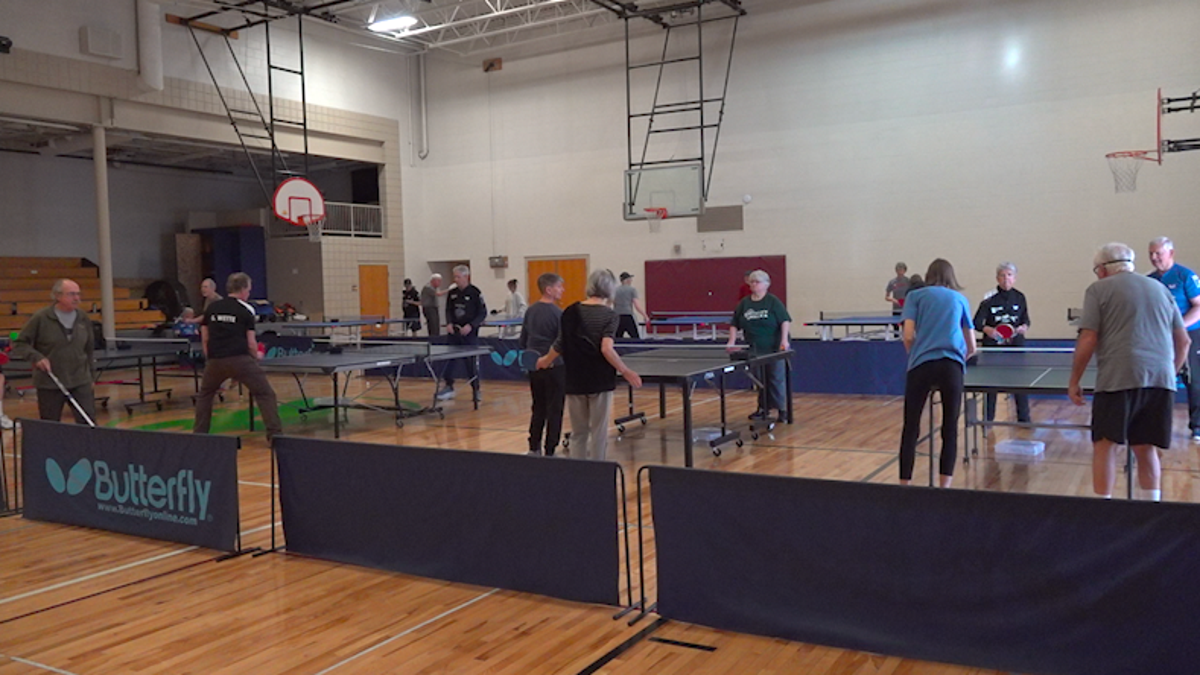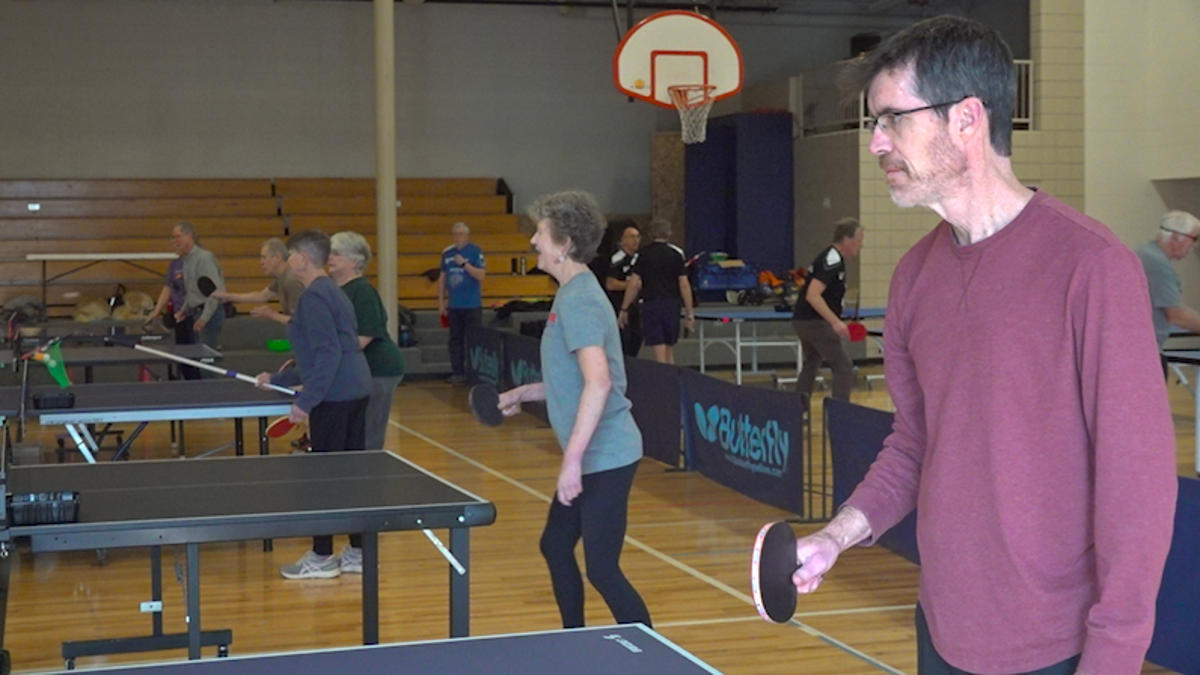Colorado doctor prescribes ping pong treatment for neurodegenerative disorders: ‘Doing something good’
Fort Collins, Colorado – One doctor is prescribing ping pong for patients who have serious neurological diseases.
Dr. Antonio Barbera, a former obstetrician-gynecologist who is now living with multiple sclerosis, is founder and CEO of Table Tennis Connections in Fort Collins, Colorado, which launched its NeuroPong program in 2021.
The group gathers every Tuesday, Thursday and Friday to play ping pong — also known as table tennis — inside the gym at the Council Tree Covenant Church in Fort Collins, Barbera told Fox News.
SMOKING SHRINKS THE BRAIN AND DRIVES UP ALZHEIMER’S RISK, NEW STUDY FINDS
For each session, the doctor collects data to determine the effectiveness of the treatment.
Players are evaluated on their performance over time and the results are sent to scientists nationwide.
Barbera got the idea for the NueroPong program in 2021 after he received his MS diagnosis in 2016 and had to quit his job as a practicing doctor.
“I completely lost the right leg motion and sensation for about three months and had to re-learn how to walk,” he told Fox News.
DEMENTIA AMONG YOUNGER PEOPLE IS LINKED TO 15 FACTORS, MAJOR STUDY REVEALS
Thanks to a combination of medicine and table tennis, Barbera was able to make a full recovery, he said.
Now, the doctor said he’s inspired dozens of people who have also been diagnosed with neurodegenerative diseases, such as dementia and Parkinson’s disease, to join the NueroPong program.

“If the intervention of the paddle and a simple ball will improve the quality of our life, why not?” Barbera said.
NueroPong members say the program has improved their symptoms in more ways than one.
“There are so many things that Parkinson’s affects,” NeuroPong member Gil Wette told Fox News.
“It’s not just tremors and stiffness and slow movements — it’s a lot of non-motor issues … the emotional part, like anxiety and depression.”
CAN YOU REDUCE ALZHEIMER’S RISK BY SEEING A HEALTH COACH? COGNITIVE STUDY SUGGESTS IT’S POSSIBLE
Healthy lifestyle changes, including exercise, have been shown to help slow the progression of neurodegenerative diseases like multiple sclerosis, Alzheimer’s or Parkinson’s.
“It’s not just the physical activity, but the fact that people are engaging in social activities … and interacting with other people. [This] can be beneficial,” Dr. Ronald Petersen of the Mayo Clinic Alzheimer’s Disease Research Center in Rochester, Minnesota, told Fox News.

Since his Neuropong program started three years ago, Barbera said the organization has spread from several cities in Colorado to gyms in New Mexico, Utah and New York, and has partnered with universities in Florida, Texas and Illinois.
Barbera said he has also worked with scientists at the University of Colorado School of Medicine.
“My goal is really to have gyms all over the place, where these people can go … where the neurologists can refer people and we can collect data to show the rest of the world that we are doing something good,” Barbera said.
CLICK HERE TO SIGN UP FOR OUR HEALTH NEWSLETTER
Multiple sclerosis affects nearly one million people in the U.S., according to the National Multiple Sclerosis Society.
For more Health articles, visit www.foxnews.com/health.
Read the full article Here


